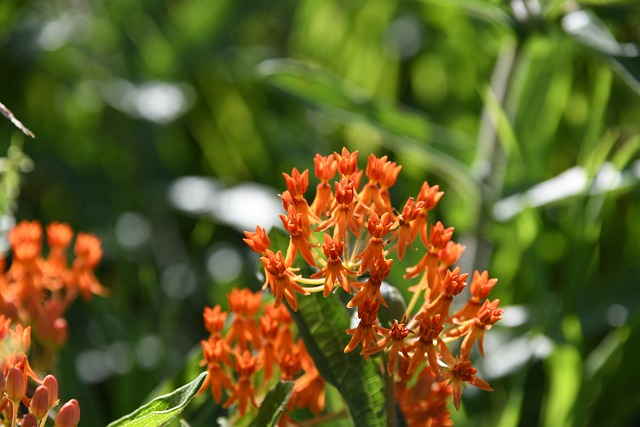The THCA flower contains THCA, a non-psychoactive cannabinoid that offers wellness benefits by interacting with the endocannabinoid system. Unlike its psychoactive counterpart THC, THCA provides health advantages such as anti-inflammatory and neuroprotective effects without causing mind-altering side effects. The entourage effect, a synergy between THCA, CBD, and terpenes, enhances the therapeutic benefits of cannabis, offering a more effective approach to pain relief, anxiety reduction, and diverse health applications. This synergy is crucial for those looking to explore the therapeutic potential of cannabis-derived products, as it highlights the distinct effects and interactions of THCA, CBD, and terpenes when used together. The THCA flower's rich profile of compounds makes it a preferred choice for those interested in the full spectrum of benefits from CBD and terpenes, which can amplify each other's efficacy and provide a more potent therapeutic response compared to isolated compounds alone.
Explore the intricate world of THCA flower, a non-psychoactive cannabinoid that’s garnering attention for its potential health benefits. This article delves into the multifaceted nature of THCA flower, illuminating its science, cultivation, and therapeutic applications. We’ll unravel how THCA flower synergizes with CBD and terpenes to enhance its effects, and guide you through the decarboxylation process that activates its properties for both medical and recreational use. Join us as we navigate the legal considerations, consumption methods, and safety guidelines of this emerging cannabis compound. From the lab to the user experience, this comprehensive exploration will shed light on all aspects of THCA flower, ensuring you’re well-informed about its place in cannabis science today and its future prospects.
- Unlocking the Potential of THCA Flower: A Deep Dive
- The Science Behind THCA: What Sets It Apart from Other Cannabinoids
- Understanding the Role of CBD in THCA Flower
- Terpenes and Their Synergistic Effect with THCA and CBD
Unlocking the Potential of THCA Flower: A Deep Dive
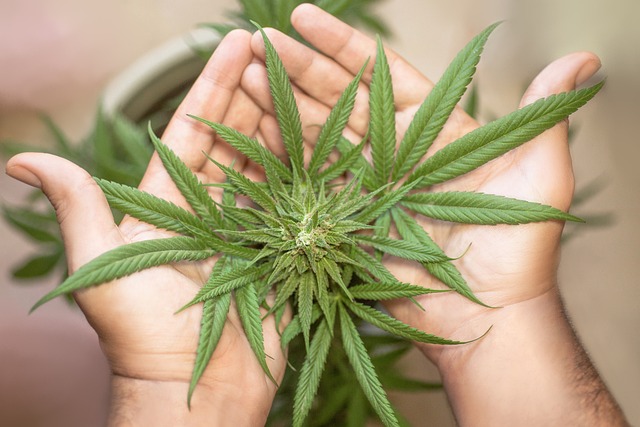
Unlocking the potential of THCA flower involves understanding its unique properties and how they can be leveraged for various purposes. Tetrahydrocannabinolic acid (THCA) is the raw, non-psychoactive precursor to THC, found abundantly in raw cannabis flowers. It’s through decarboxylation—the process of heating cannabis—that THCA converts into THC, unlocking its psychoactive effects. However, in its acidic form, THCA exhibits distinct characteristics, including a strong affinity for the body’s endocannabinoid system, which can influence well-being and health without the psychotropic impact of THC.
The entourage effect, a phenomenon where CBD and terpenes enhance the therapeutic qualities of THCA, is central to the flower’s efficacy. Cannabidiol (CBD), a non-psychoactive compound, works synergistically with THCA to provide a comprehensive range of benefits, from pain relief to anxiety reduction. Terpenes, the aromatic compounds found in cannabis, not only contribute to its flavor and fragrance but also play a critical role in modulating the effects of both THCA and CBD. These terpenes can have various effects, such as anti-inflammatory, analgesic, or mood-elevating properties, making the THCA flower a potentially powerful natural remedy with a wide array of applications. Understanding the interplay between these compounds is key to unlocking the full therapeutic potential of THCA flower and harnessing its benefits for health and wellness.
The Science Behind THCA: What Sets It Apart from Other Cannabinoids
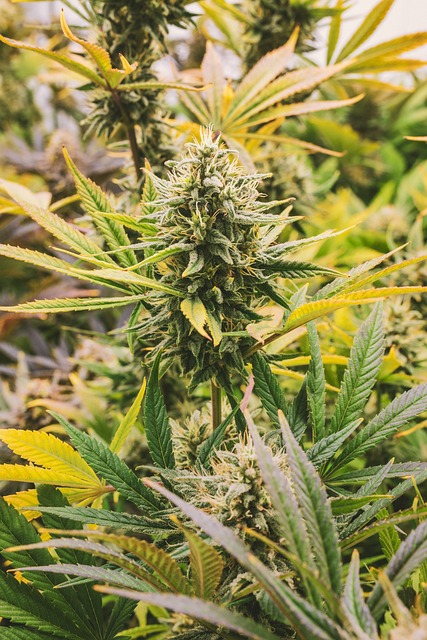
betacyclolic cannabinoid, known as tetrahydrocannabinolic acid (THCA), is a non-psychoactive precursor to THC, the primary psychoactive component of cannabis. THCA flower retains this beneficial form due to careful cultivation and processing techniques that prevent the heat-induced conversion to THC. The unique properties of THCA set it apart from other cannabinoids like CBD (cannabidiol) in several ways. Unlike THC, THCA does not induce psychoactive effects but exhibits potential therapeutic benefits. Research suggests that THCA may possess anti-inflammatory and neuroprotective qualities, which could be advantageous for individuals seeking alternative health remedies without the psychoactive influence of cannabis.
CBD, another prominent cannabinoid found in hemp and cannabis plants, functions differently from both THC and THCA. While CBD is also non-psychoactive, it interacts with the body’s endocannabinoid system through various receptors, influencing a wide range of physiological processes. The synergistic effects of THCA flower’s cannabinoids are further enhanced by its rich terpene profile. Terpenes are aromatic compounds that contribute to the distinctive flavors and scents of cannabis strains and play a crucial role in influencing the plant’s therapeutic effects. The entourage effect, a term used to describe the combined effect of cannabinoids and terpenes, is thought to heighten the therapeutic potential of THCA flower. This synergistic interaction can lead to a more effective and potentially broader spectrum of benefits compared to isolated cannabinoids like CBD alone. The nuanced effects of THCA flower, therefore, are not only due to its standalone properties but also because of how it interacts with other compounds within the plant.
Understanding the Role of CBD in THCA Flower
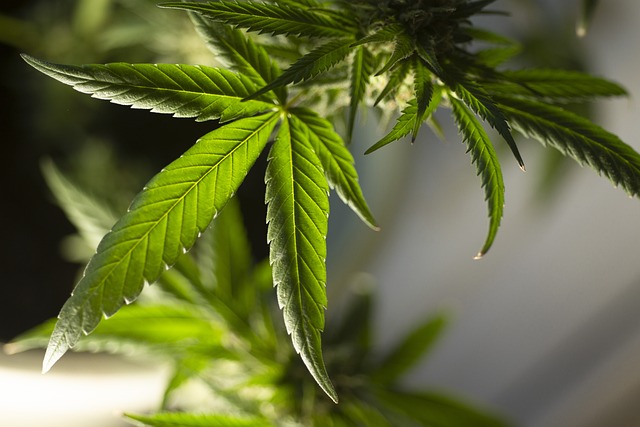
The relationship between cannabinoids, terpenes, and the therapeutic properties of THCA flower is a fascinating aspect of cannabis research. Tetrahydrocannabinolic acid (THCA), the precursor to the psychoactive compound tetrahydrocannabinol (THC), exists naturally in raw cannabis plants. As it undergoes decarboxylation through heating, it transforms into THC. However, THCA itself has unique properties that are being explored for their potential health benefits. One such cannabinoid is Cannabidiol (CBD), which, unlike THCA and THC, does not produce a psychoactive high. CBD and THCA both interact with the body’s endocannabinoid system, influencing various physiological processes.
CBD in THCA flower plays a synergistic role alongside other cannabinoids and terpenes. These compounds work together through what is known as the ‘entourage effect,’ enhancing each other’s effects to produce a more potent therapeutic outcome than any single compound alone. For instance, CBD can mitigate some of the psychoactive effects of THC, offering a balanced experience for users who seek the benefits of cannabis without strong psychoactivity. Additionally, research suggests that CBD has potential in managing pain, reducing anxiety and depression, combating inflammation, and improving certain skin conditions. The presence of various terpenes in THCA flower contributes further to its effects, as each terpene offers unique aromas, flavors, and therapeutic properties that can influence the overall experience and efficacy of the flower. Understanding these interactions is crucial for consumers and healthcare providers alike, as it allows for more targeted and effective use of cannabis-derived products for various health concerns.
Terpenes and Their Synergistic Effect with THCA and CBD
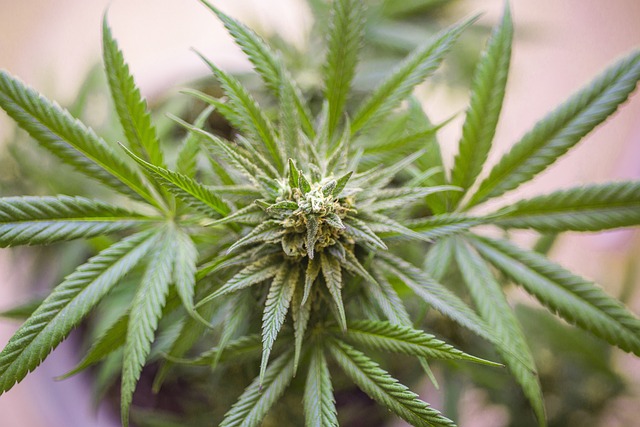
Delta-9-tetrahydrocannabinolic acid (THCA) and cannabidiol (CBD) are two prominent cannabinoids found in the Cannabis sativa plant, each with distinct therapeutic properties. THCA is the precursor to the psychoactive compound Delta-9-THC when exposed to heat or sunlight. On its own, THCA offers potential benefits, including neuroprotective and anti-inflammatory effects, without the psychoactive high associated with its decarboxylated form. CBD, conversely, is renowned for its non-psychoactive nature and wide array of wellness applications, such as reducing anxiety and alleviating pain.
The entourage effect is a concept that describes the synergistic interactions between cannabinoids and terpenes present in cannabis. Terpenes are aromatic compounds found abundantly in many plants, including hemp, and they contribute significantly to the scent and flavor profiles of THCA flower. These organic molecules not only influence the taste and smell but also play a crucial role in enhancing the effects of both THCA and CBD when consumed together. The combination of terpenes with THCA can amplify its psychoactive potential, should it convert to THC upon decarboxylation, while also providing additional therapeutic benefits. Similarly, the presence of terpenes can enhance the efficacy of CBD by potentially increasing its bioavailability and modulating its effects, leading to a more robust overall experience. This synergy is what makes THCA flower with high terpene content a preferred choice for many users seeking the entourage effect’s benefits.
THCA flower, rich in cannabinoids like THCA and complemented by its entourage effect with CBD, stands as a significant subject of interest within the realm of cannabis research. This article has elucidated the potential of THCA flower, delving into its unique properties that set it apart from other cannabinoid-rich products. The synergy between THCA and CBD, enhanced by the presence of diverse terpenes, offers a multifaceted approach to wellness, which continues to be an area of growing scientific interest. As research progresses, the understanding of how these compounds interact within the body promises to open new avenues for natural health solutions. The exploration into THCA flower’s benefits underscores the importance of considering this natural substance as a potential therapeutic option.
